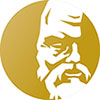Aktuell in der ZKM
Das Harvard-Konzept weiterentwickelt: William Ury im Interview (Berkel, ZKM 2023, 136)
Verhandlungsexperte Professor William Ury hat das erstmals 1981 veröffentlichte Harvard-Konzept („Getting to Yes“) im Laufe der Jahre weiterentwickelt. Im Interview mit Prof. Dr. Georg Berkel erläutert er seine wichtigsten Erkenntnisse aus jahrzehntelanger Verhandlungserfahrung.
In your books you have condensed broad and deep insight into elegant and practical step-by-step guidelines for negotiators. Yet there is a limit to the tactics that each can unilaterally “script”. What guidance can you offer?
Negotiation can be compared to jazz: You have an idea of where you're going, and then there's a lot of improvisation. It's a co-creative process between you and the other party, and you both get changed in the process. So, precisely because it can’t just be scripted rigidly, it requires even more preparation. You prepare knowing that whatever plan that you have will not be the way it unfolds, because it's essentially an unpredictable process. At the same time, you have to be present in the moment. You have to bring your full faculties to bear on the situation. If you're paying keen attention, there will be opportunities that will arise that will be unexpected.
I'll give you an example. Many years ago, I was working in the country of Venezuela and there was a lot of political polarization. There were a million people on the streets of Caracas, chanting either “Down with Chavez!”, or in support of the president. Former U.S. President Jimmy Carter asked me to meet with President Chavez in the palace. And I thought maybe it was going to be a short courtesy call. My first thought was to go in with a script: I've got my five minutes with the president; this is what I would advise him to do. But then I decided not to do that. I thought, whatever I say to him, he's not going to receive it. My primary purpose was trying to see what could be done to avoid further escalation into a possible civil war. And so I threw away my script and I just went in and tried to connect with him. In the first five minutes, we began to connect personally as we had daughters the same age and a common friend, President Carter. And then I asked him about Simon Bolivar, the historic revolutionary leader whom I knew he admired. He had paintings of Bolivar in his office. And Chavez lit up and said “You know, that's why I'm here in the palace because of Simon Bolivar!” And he told me his whole life. An hour went by. And there was a long line of people waiting to see him and I might have had only had five minutes on the agenda. But then he asked me “So, Professor, what advice do you have for me on this situation here in Venezuela?” And then at that point, I could then give him some suggestions. It worked precisely because I had been looking for those “unscripted" opportunities. And he invited me back for more meetings – all this because I had abandoned my script and sought to connect with him instead.
What do you think made him ask that question?
I believe he asked that question because I had listened to him. In a negotiation we spend a lot of time telling people what they should do. But almost no one wants to hear what they should do! The more you tell them what they should do, the more they tend to resist. It's usually only when they invite you that they are willing to listen. Because I listened to him, he became more interested in listening to me. And then there was an invitation to offer advice and ideas. Basically, negotiation is a dance. You could say “These are the steps!”, but the other side may choose not to dance with you and you may end up tripping over each other.
And preparation of course is even more essential?
Yes. Because the situation is unpredictable, you have to prepare even more in order to be flexible. Let me give you a current example: the terrible war in Ukraine. At this moment, the two parties are saying it is not the right time for negotiation. That may be so but it’s always the right time to prepare. A negotiation like this will take a lot of preparation. When it’s time for the negotiation, people may assume you can just show up and talk. Well, we need to strategize for the negotiation too. We need to prepare. We need to have peace games, not just war games, long in advance to be ready for the opportunity to negotiate effectively when that opportunity arises.



